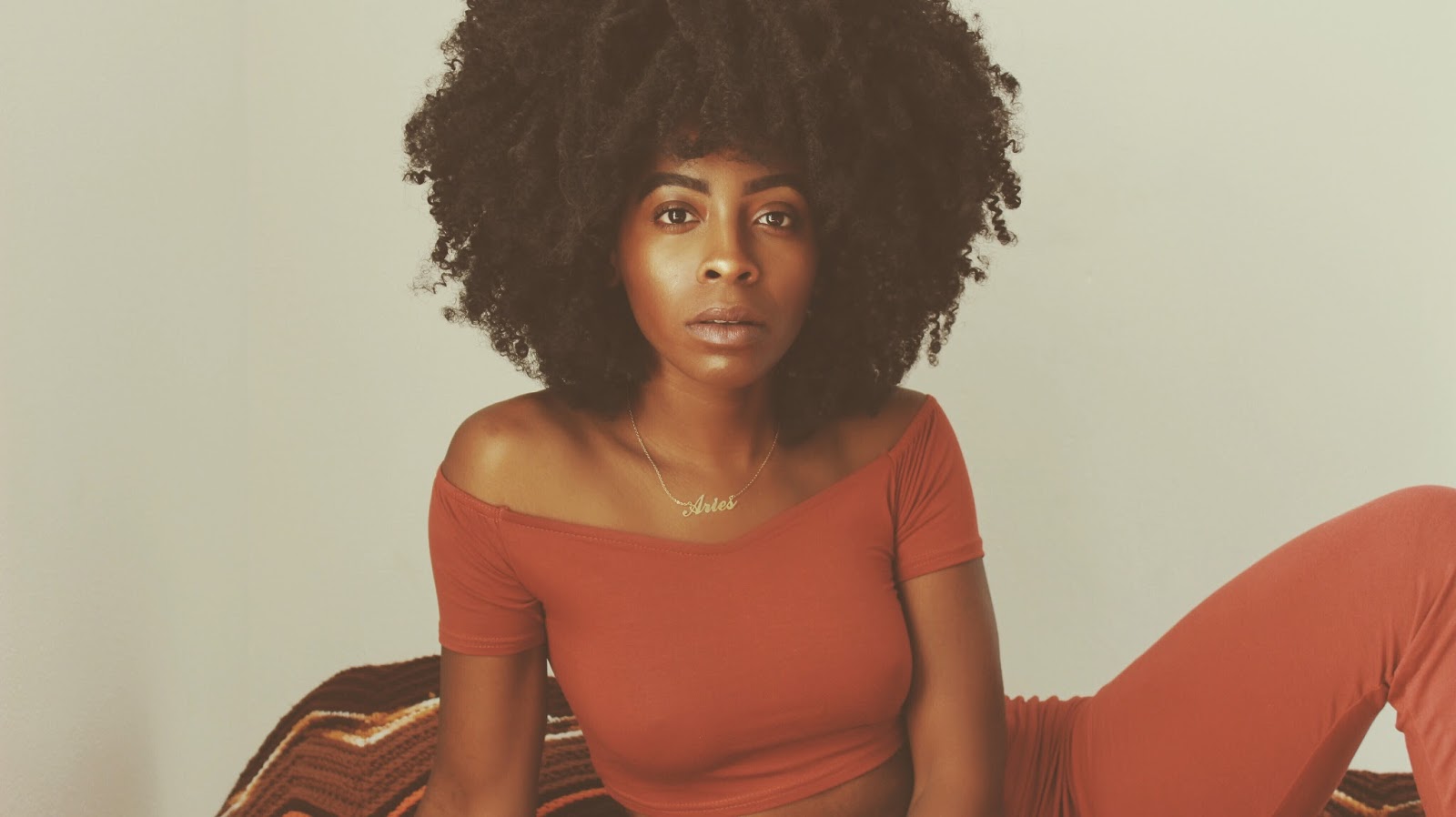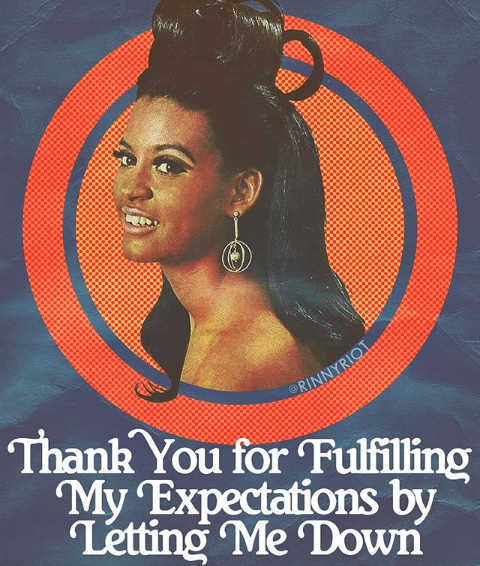In her meme-like digital collages, which reimagine 70s advertisements and album covers, the Los Angeles-based artist and comedian Rinny Perkins reflects on her personal life and reacts to the idiosyncrasies of contemporary society. In one such collage, the cover for Roberta Flack’s 1973 single “Killing Me Softly” has been overlaid with the words, “Can’t wait… for the next person I date to disappear for weeks without contact… so I can pretend like it doesn’t bother me.” In another, Diana Ross is in a cowhide jumpsuit posturing in front of three giant letters: PMS. “I am able to function like a rational human person,” Perkins writes in the caption, “except for those 1-2 weeks out of every month, when I lose my shit because my hormones don’t respect my ‘personal brand.’” But as much as her work is playful it is also profound: In addition to dealing with topics such as self-care and sex, it approaches representation and intersectional feminism.
“I like to think of my work as propaganda for Black personhood,” Perkins explains. “I strive to saturate viewers with undeniable images of Blackness… so much so that our existence is normalized and not othered.” i-D caught up with Rinny to learn more about her work, the importance of representation, and her affinity for the 70s.
Where did you grow up? What was it like there?
Third Ward, Houston, Texas, baby. Growing up there was awesome. Going to the rodeo, zydeco festivals in the summer and being perpetually afraid of snakes in the bayou. To be young and Black in the historical neighborhood of Third Ward was a rich experience on its own. Getting to see Black trail riders of the Southwest Trail Riders Association ride their horses through your neighborhood as a kid added the right amount of representation that we never would’ve seen on TV. I got to grow up in a community steeped in pride for Black personhood and the many forms in which Blackness shows up.

Did you fit in or stand out?
It really depends on who you ask. I would say I fit in, but others most likely would say I stood out — especially when I tried to recreate the looks from Spice World. Yeah, looking back on that, I’m sure someone thought I was a weirdo.
When and why did you move to Los Angeles?
I’m actually coming up on my 10-year anniversary of living in LA. I moved to LA in 2009 in hopes of being in the TV reboot of UPN’s hit-sitcom Half & Half featuring Rachel True. OK, there wasn’t a reboot, but I really would like for this to happen. Yvette Denise Lee Bowser, call me!
Where did the idea come from to combine vintage ephemera with modern satire?
My Aries sun has tons of ideas and my Virgo rising desperately needed them to fit into a format that made the most sense to me.
Why did you select images from the 70s versus another era?
The 70s era radiates so much unapologetic Black culture since it heightens the Black Power Movement that started out in the 60s. Additionally, my folks and other adults I grew up around were a part of that generation and thus I latched on to much of their beloved pop culture. My elementary school literally screened Cornbread, Earl and Me, when I’m sure most kids just wanted to watch Power Rangers or Doug. Aesthetically, I also love the richness of the colors and textures during that time period.
Why is it important for your work to show Black women? How is your work normalizing Black identity?
Because you can never have enough images of Black women going around. I like to think of my work as propaganda for Black personhood. I strive to saturate viewers with undeniable images of Blackness adjacent to my own personal experiences; so much so that our existence is normalized and not othered. Blackness is not a token subplot to the main character’s arc. Additionally, as a Black woman, I understand the inner conflict of not seeing yourself in the art and media you consume while trying to validate yourself in a society that doesn’t even bother to write your story.
Why is intersectional feminism important to you? Why should it be important to others?Intersectional feminism is important to me because it’s through this lens that we are able to truly dismantle systemic structures that inhibit real equality. Inequality rears its head beyond the utterance of cute and quirky quotes. It’s life or death for a lot of us. You can’t take down inequality without addressing the injustices that extend beyond the scope of them damn cis-centric “pussy hats.”
The best part about being an Aries?
Bold honesty. I’d say 90 percent of the time our actions match our words. The other 10 percent of time you’re just getting left on read.
Lisa Frank or Frank Ocean?
At the time of publishing, Frank Ocean has yet to make his Nostalgia Ultra mixtape available on streaming platforms, so I’m going to say Lisa Frank Ocean.
Check out Rinny’s store here.
